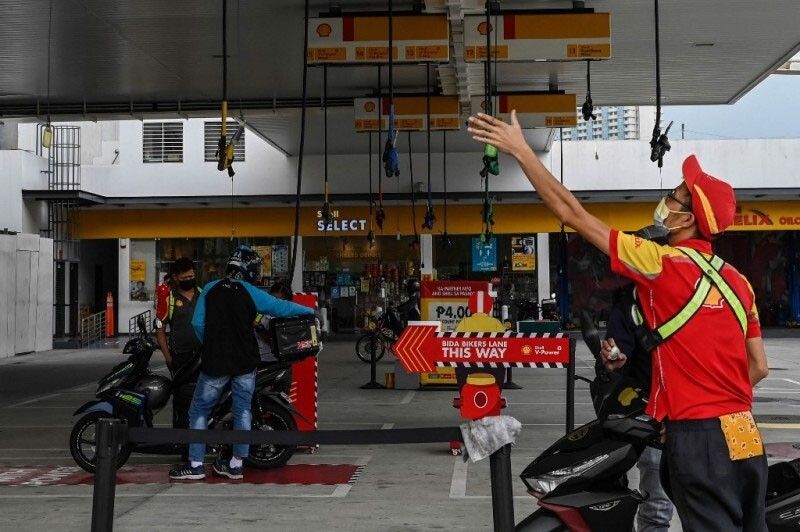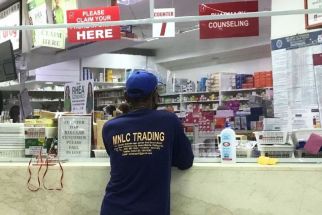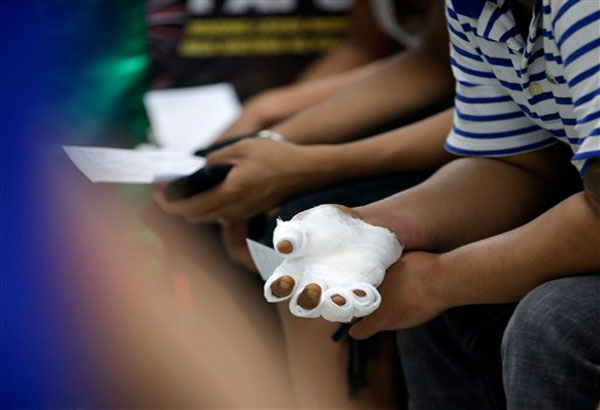Pump prices going up anew

MANILA, Philippines — A weaker peso, along with global developments, will again push pump prices higher this week.
In its forecast, Unioil Philippines said diesel would increase by P2.50 to P2.60 per liter and gasoline by P0.50 to P0.60 per liter.
This would be the fourth consecutive week that diesel prices will be hiked and the third consecutive week for gasoline.
Earlier, Department of Energy-Oil Industry Management Bureau (DOE-OIMB) director Rino Abad said the global situation continued to be tight in terms of supply, even as China begins to reimpose COVID-19 restrictions.
But more than overseas developments, the weaker peso was the main contributing factor to the higher fuel prices, DOE undersecretary Gerardo Erguiza said on The Big Story over One News last Friday.
“We buy oil using dollars. The conversion rate now is high. Fuel prices increase because of the foreign exchange,” he noted.
Last week, the Philippine peso skidded past the 53 to $1 level, the lowest in three-and-a-half years. The local currency further sank, closing P53.75 against the US dollar on Friday.
As the Organization of the Petroleum Exporting Countries (OPEC) is expected to pump out higher output starting July, Erguiza said some respite might be seen from the successive price hikes.
“The most basic problem we have right now is the supply production versus demand that we need all over the world. If OPEC increases their production, it will increase supply, with a tendency to bring down prices,” he added.
However, this may be tempered by the commencement of Russian import ban by the European Union (EU) as they will start to turn their sourcing to the Middle East, heightening competition in an already tight market.
“We will be affected by the EU import ban worldwide. That’s five million barrels a day. If they get oil from the Middle East, supply will be tight,” Erguiza said.
The Philippines only imports 2.87 percent of its requirements from the Middle East, which is crude oil, and gets the rest of fuel requirements, or refined products, from neighboring Asian countries, including China, South Korea, Singapore, Japan and Malaysia.
On the proposals to get crude oil from Russia, Eguiza said this is highly unlikely due to operational and diplomatic issues.
“We can’t just implement this. Even if the government imports (oil from Russia), it can’t order oil companies to source from Russia since they are deregulated and they already have contracts. And even if we get from Russia, we don’t have the mechanism to distribute these products. Petron was privatized, and we don’t have outlets to do it,” he said.
“On the diplomatic side, even if we get from Russia, the community of nations, which are our allies, will question this move,” the DOE official said.
Russian Ambassador to the Philippines Marat Pavlov presented earlier this week his country’s willingness to work with the Philippines to find other sources of fuel in the face of rising oil prices.
Transport emergency
Meanwhile, the commuters’ group The Passenger Forum (TPF) is urging the government to enact immediate solutions to address the worsening transport emergency arising from skyrocketing fuel prices.
The group said the government should work out a solution as public utility vehicles have reportedly stopped operating due to loss of income.
“We are now in a transport emergency. It is obvious that whatever the government is doing is definitely insufficient (compared) to our gigantic problems in the transport sector,” said TPF convenor Primo Morillo.
The TPF is asking the government to convene an emergency task force to solve transport problems other than resorting to what it says as “band aid solutions.”
While it noted the P1.00 provisional increase in fares approved by the Land Transportation Franchising and Regulatory Board for public utility jeepneys earlier this week, it said this is not enough to address the woes of all stakeholders in the transport sector.
They added that even diesel subsidies by the Department of Transportation and the Department of Energy are insufficient.
It also claimed that the P1.00 increase only contributed to the rise in inflation rates in the country.
“It seems that it is just right for the government now to form an emergency task force that will quickly look for ways to solve our transport woes. The DOE and the DOTr are just ineffective and the DOTr even prematurely celebrated their supposed achievements two weeks ago,” Morillo said.
Morillo noted that PUV supply already took a hit due to the COVID-19 pandemic but is now worsening due to the fuel price hike, especially in Metro Manila.
TPF is advocating for the return of more PUVs on the road as passenger demand increases as the country shifts to a new normal after the peak of the pandemic.
It emphasized that the transport crisis affects the Philippine economy, not only commuters and transport workers.
“We really hope that, though we are in a period of transition, the outgoing and the incoming government still see the wisdom in creating a dedicated, albeit temporary, government body to solve this crisis. And while we’re at it, we further hope that they will study long-term solutions that will veer us away from the fossil fuel-dependent, car-centric system we have right now,” Morillo added. – Romina Cabrera
- Latest
- Trending
























